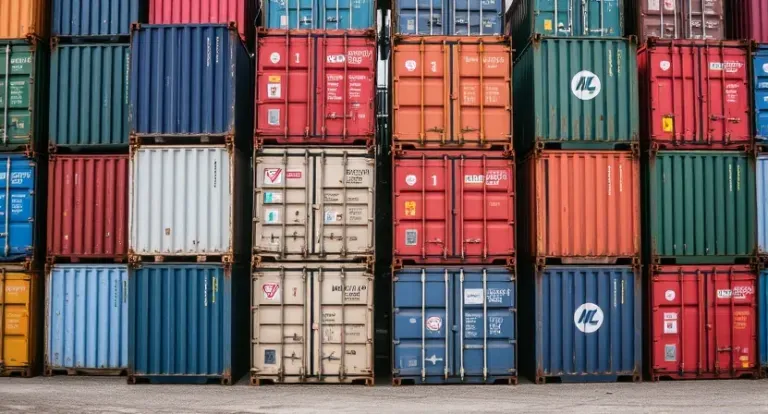What is the Difference Between LCL and FCL Shipment?
Compare LCL and FCL shipping methods in global trade. Learn their costs, benefits, transit times, and when to choose the right option for your business

Shipping methods available in global trade can be as simple as the means by which businesses ought to transport their products both efficiently and economically. The two main shipping options available to those who want to carry merchandise in containers are Less than Container Load (LCL) and Full Container Load (FCL). Each offers a different kind of preference when it comes to shipping, mainly because of the kind of demand for your shipment. For you to have a better understanding of what kind of shipping strategy is the best for your shipment, this article gives you an overview of the key differences between LCL and FCL shipments.
Understanding Container Shipping
Container shipping transformed the world for moving goods and other commodities around the globe. This means that a standardized cargo container is being used to transport by sea, rail, or road. Because of container shipping, goods are protected against further damage during the actual transit, and there's more efficient loading and unloading. LCL or FCL shipping also depends on many factors, such as the size, cost, or timelines in delivery.
What is FCL Shipping?
Full Container Load (FCL) refers to shipping in which a single container is used by one supplier strictly for only one shipment. In FCL, one exporter or shipper fills the entire container, and it is suited for those businesses that have more items to be shipped in higher quantities.
Key Features of FCL Shipping:
- Dedicated Space: Because the whole shipping container is used for only one shipment, the user will not have to share space with other shippers.
- Cost Efficiency: FCL is very cost-effective with oversized shipments, as you pay a flat fee for the full container in FCL rather than every cubic meter or gram in LCL.
- Faster Transit Times: FCL shipments are usually fast because they are not consolidated at the port.
- Less Handling: FCL has to go through lesser handling when compared with LCL. This, therefore, lowers the odds of breakages while delivering.
What is LCL Shipping?
It entails providing Less than Container Load (LCL) Shipping. Shipping, which literally denotes shipments that would not occupy a full-size container. Such shipping offers services that allow multiple people to use the container, where shipping your shipment in small quantities happens.
Key Features of LCL Shipping:
- Cost-Effective for Small Shipments: LCL is generally advantageous to the majority of businesses shipping smaller quantities to avoid completely having to bear the expenses associated with a high container in full.
- Flexible Shipping Options: You can send lower quantities with more frequency compared to keeping them until the minimum volume you need in order to make an FCL shipment.
- More Handling Required: Because LCL keeps many shipments in one container, it involves more handling in the ports, thereby increasing its chances of getting damaged or lost during transit.
- Longer Transit Times: Long transit times are another outcome of the consolidation process since their goods undergo extra handling processes, leading LCL shipments to be in transit longer than FCL shipments.
Comparing Costs
This cost is also what usually drives one to differentiate between LCL and FCL.
- FCL Costs: The costs of FCL shipping are primarily flat rates based on renting the container. This can be economical when there are sufficient goods to fill the container, eliminating costly per-unit costs.
- LCL Costs: LCL costs are based on the volume or weight of the shipment. Although it can be cheaper for small loads, it may be relatively more expensive per unit as the shipment size increases owing to handling fees and other kinds of added surcharges.
When to Choose FCL vs LCL
Choose FCL When:
- You have enough volume to fill an entire container.
- You need faster transit times.
- You need fewer touches and less damage exposure.
- You need guaranteed space for your goods.
Choose LCL When:
- Your shipment volume is too small to justify renting an entire container.
- You want to ship in smaller volumes with higher frequency.
- You want lower-cost options if time is not of the essence.
- You don't mind the extra touches if it saves you money.
Final Thoughts
Now that you know what LCL and FCL shipments are, you can start considering which shipping option will suit your needs the best. Ensure you take the time to review your shipment size and needs before making your decision. You can get access to all relevant information about cost and logistics processes to smoothen out your operations and increase efficiency in international trade. You can be updated on the latest developments in container shipping and shipping methods with a view to making strategic decisions for your business.